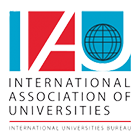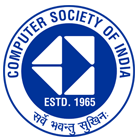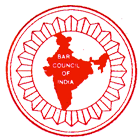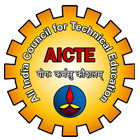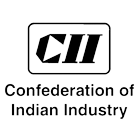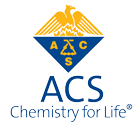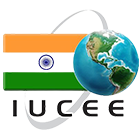About Us
Institute for Development and Communication (IDC) is a premier autonomous research,
training and evaluation organisation of North-West of India.
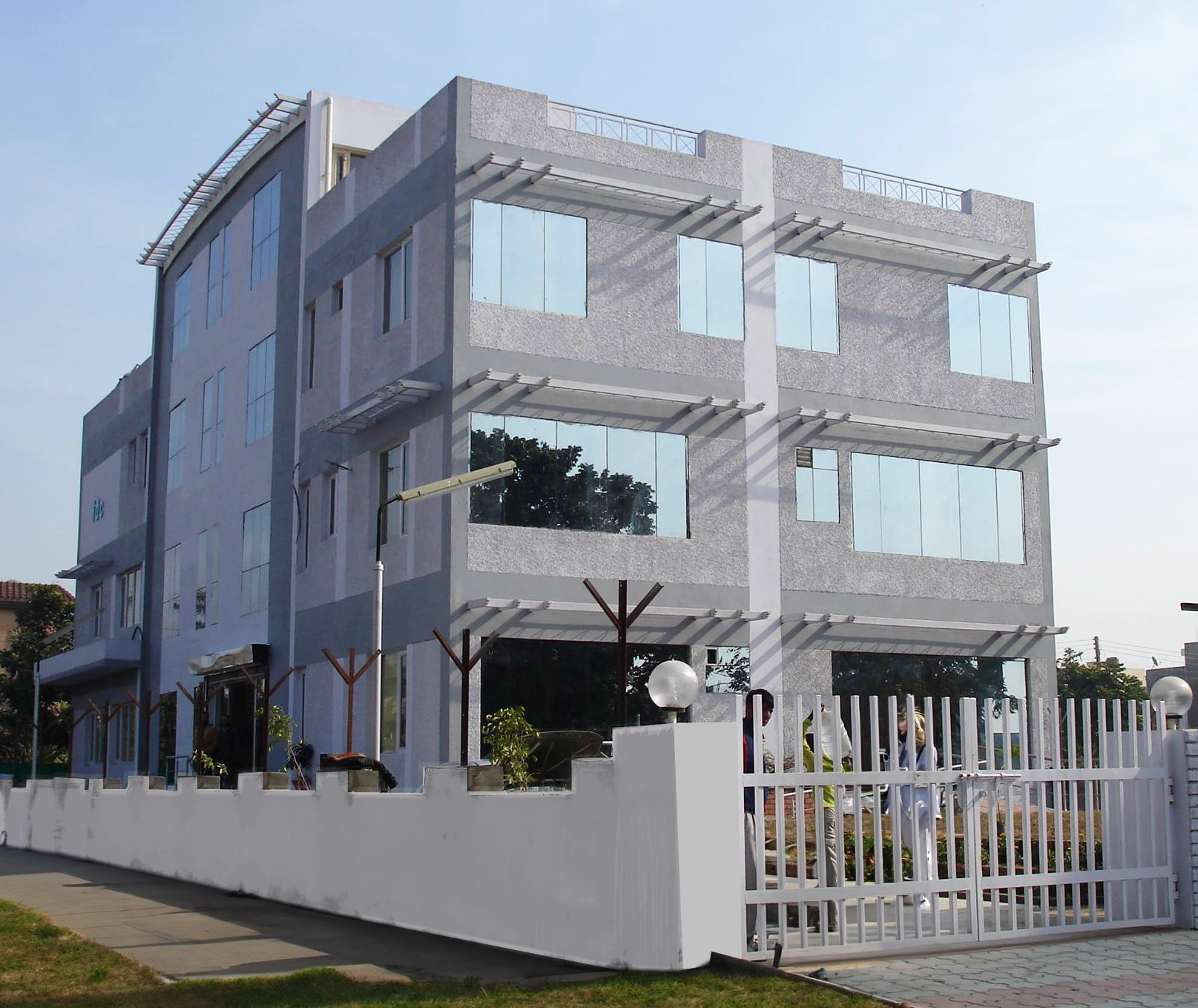

About IDC India
Message from the Director
Institute for Development and Communication (IDC) is an autonomous, non-profit research organization located in north-west India. It works from an inclusive perspective, for an equitable socioeconomic transformation to build a humane and just society. The core areas for research explorations have evolved in consonance with area-specific challenges and specialisation of research leadership. The first concern continues to be re-examination of the theoretical underpinning of varied empirical explanations for knowledge synthesis and the second relates to its transfer for interventions.
It is engaged in social research with implications for change in the fields of governance, economic development, peace, conflict resolution and policing, education and gender justice. By serving as a source of knowledge and innovation in these areas for government officials, activists and citizens, it works to shape public policy, build institutions and citizens’ capacities and improve the delivery of justice. The main thrust is to undertake research in association with stakeholders to advance knowledge and interventions that fit local needs. It is committed to connecting local needs and knowledge with global standards of human rights and equity.
Dr. Varinder Sharma
Director, IDC
Vision and Mission
Institute for Development and Communication has evolved from the specialisations of its founding members. They were growing social scientists, committed to generating knowledge to harness the potential of their region and address the special needs of the society of their origins. Rooted in the social milieu, the organisation could establish forward and backward linkages to knowledge generation, stakeholder support and policymakers in North-Western India particularly the state of Punjab. The engagement with social and economic issues confronting the region was tapered by the interest of the researchers, which led to a programmatic thrust with the focus on process rather than on completion of projects. Continuous efforts are going on to consolidate this approach to build systematic interventions in a multipronged manner, by combining resources from local initiatives and to build upon the excellent outreach and relation with civil society, political leadership, vernacular and national media.
Approach
IDC has built partnerships that have provided support and sustenance across projects, research areas and overtime. The focus continues to be to construct knowledge from below. Issues raised at the grassroots level are empirically verified and shared across stakeholders to consolidate policy initiatives. This has been possible with the planned organisation of resources and research capacities to include a Governing body reflecting leadership across academic, policy planning, civil society and cultural traditions. The academic partnerships and research guidance from an internal committee have contributed to relevant methodology, multi-disciplinary outlook and policy-designed contributions. These have helped to evolve human resources to transfer knowledge into frameworks, strategies, mechanisms and tools for intervening in social development. IDC has also a capable human resource to impart training methodologies for grassroots functionaries. A 10,000 plus- library supports the research forays.
Challenges
IDC is committed to strengthening organisational capacity, transparency and exchange within its organisation. The Institute’s support for leadership development has led the governing body to allocate available funds to each research director to develop research initiatives with full autonomy, since 2007. It has also formalised an interface from two or more units to promote multidisciplinary perspectives in an effort to provide strong policy packages. The programme on Justice and Democratic Governance bridges Policing and Gender Units while the North-Western Regional Development Studies Unit encompasses all the specialisations in the organisation. Research methods courses have been organised for research staff and interns placed in the organisation. There is a regular flow of interns, providing them exposure to researchable issues, methods and data collection to link knowledge with practical ways for social change. It remains an unfulfilled effort to integrate performance ratings with project outputs and make financial systems friendly to researchers’ review for a cost-benefit analysis
Production And Dissemination Of Synthesised Knowledge Through Academic Exchange
IDC has established linkages, both formal and informal with universities and academic initiatives in the region and globally. These partnerships have facilitated to build capacity for research by holding joint courses for researchers’ skill development, particularly on research methods and culturally sensitive methodologies and training to shape research outputs for policy-relevant use. These partnerships have nurtured forums for linking research with viable policy initiatives and led to organising research networks to strengthen their outputs to policy-relevant products.
IDC has evolved a consortium with regional academic institutions to undertake an assessment of research output in areas of common research. Based on a cost-benefit analysis, the shape of future investments and policymaking can be strengthened. The idea is to pool in resources to identify researchable issues and challenges faced, and share resources of networks, policy inlets and publications. IDC has entered into formal arrangements with universities to encourage internship training and develop a curriculum for short and mediumterm internship capacity-building for meaningful contributions to social policy.
The building of causality analysis within and beyond specific areas of research requires both theoretical and methodological inputs from expertise in borderline disciplines, engagement with public policy and model testing. It is these expectations from strategic partnerships that help IDC to infuse different viewpoints and capacities that lead to the production of synthesised knowledge, shaping of policy and involving the civil society as stakeholders.
Why Choose Us
Strategic partnerships
IDC draws on three types of strategic partnerships. One pertains to academic partnerships and exchange which are at the global, regional and local levels. The second draws on civil society organisations that are more regional and national in perspective and location, including NGOs, media and activists. The third refer to policymakers at national and local levels. Governance is a state function and IDC’s approach is to strengthen institutional mechanisms to make them responsive to the rights of citizens,’ particularly those on the margins.
In the north-western region, IDC has a strong network with Chandigarh Region Innovation and Knowledge Cluster (CRIKC) institutions, Panjab University, Chandigarh and Chandigarh University, Mohali and grassroots organisations who have partnered in research activities.IDC has also entered into an agreement with the
National Institute of Electronics & Information Technology (NIELIT)
Ropar, of the Ministry of Electronics & Information Technology, Government of India to support each other’s endeavours in delivering academic programmes.
Globally, it has entered into formal arrangement with the Ryukoku University, Kyoto, Japan and University College, Stockholm, Sweden to:
- Strengthen the exchange of, and communication between, research institutions regarding research outcomes and research activities.
- To exchange academic materials and share periodicals published by research activities, the research institutions.
- To collaborate on research projects of mutual interest.
The Government of India Training Orientation and Research Centre located in IDC, to build teachers’ capacities provides a platform to share research findings and receive a feedback which is reworked into training capsules.
Organisational Structure
Research Units
Centre for Public Policy and Governance Studies (CPPGS)
The Governance Studies Unit takes up studies on issues, which are of relevance to the common citizens, especially the poor and underprivileged. The studies are taken up on assessment of the state of the governance where the attempt is to establish certain benchmarks and standards for further research and follow ups. These studies are undertaken in states of North Western India.
IDC’s Governance Programme seeks to improve the welfare of the disadvantaged and deprived sections. IDC’s work has highlighted that the existing system of governance faces challenges in the provision of equal access to social programmes and economic packages on the basis of caste, gender and class. Future programmes would like to strengthen processes, procedures and the design of public services to provide dignified and equal access of state services to the disadvantaged and marginalised sections of society.
The focus of this unit is cutting edge transactions, which act as an enabling condition for synergistic view of the demand and supply side of governance study. Focus on cutting edge transactions includes cost of transactions as well as the cultural aspect of service-delivery issues. Considering the uniformly structured roles and institutions governing the conduct of public officials, such micro studies would have relevance for good governance across the board and hopefully facilitate identification of convergence or otherwise in respect of such transactions across different sectors and areas of public governance and this expand the scope of application of best practices beyond sector perspectives.
The Peace, Conflict Resolution and Policing Unit is functioning within a broad context of the changed character of nation-states, the consolidation of democracy, questions of migration throughout the region, security sector reforms with special reference to policing, post-conflict management and reintegration. The purpose of this unit is to present a strong case for the importance of a regional perspective and to illustrate that the conflicts in South Asia are interconnected. The main focus of peace and conflict resolution studies is to analyse conflict, peace and reconstruction. And also creation of research partnerships for evidence-based research as an input to context specific informed decision by the actors or parties to conflict and enhance civil society’s ability to hold accountable these actors for their actions. Peace building, to this end, is one of the best examples of how bottom-up and top-down approaches go together.
The focus of police reforms programme is three-fold: (a) institutionalisation of community-oriented reforms with major thrust on involvement of community particularly to protect the rights of vulnerable sections; (b) Formulation of programmes and undertaking activities for improving the delivery of police services to the people. IDC was in lead for the conceptualisation and implementation of CPRCs (Community Policing Resource Centres) in collaboration with human rights groups, NGOs and Punjab Police. It also initiated a process of police stations reforms through its programme of Police Stations Visitors Week in the states of Punjab, Rajasthan, Kerala, Assam, Meghalaya, Andhra Pradesh and Chandigarh launched in the year 2006; (c) multi-cultural thrust with an inclusive approach forms an integral part of its justice and policing programme with special focus on gender and scheduled castes rights.
IDC has also been involved in developing a Methodology for Criminal Justice System in India. It has contributed a manual on Criminal Justice System Index published in 2008. IDC is part of a global core group working on developing justice index.
Course Title: The Making of Political Leaders in India
Course Overview
This course will explore the foundational principles, structures, and dynamics of Indian politics while comparing them with the democracies of the USA and Europe. It aims to provide students with a comprehensive understanding of how political systems function within different cultural and historical contexts. It aims to provide students with insights into the qualities, experiences, and strategies that shape effective political leadership in India.
This course will equip students with a nuanced understanding of what it takes to become a political leader in India, emphasizing both theoretical frameworks and practical applications.
It shall also delve into the unique political environment of India, characterized by its fluid institutional boundaries, loosely structured political parties, and the often ambiguous role of legislatures. It will critically examine how these factors influence political leadership and decision-making in India, differentiating it from more rigid political systems in other democracies. It shall offer an in-depth understanding of how leaders navigate and thrive in this environment.
The main thrust area of this course would be to change the political landscape to the advantage of the people living on these margins. The emphasis would be to strategise a balance between electoral mobilization, welfare politics, institutional reforms, identity politics, and adapting to globalization and technology. These areas shape the strategies political leaders use to require to function within the complexities of Indian politics and bring about change within the framework of a fluid, often loosely defined institutional system.
Centre for Regional Development Studies (CRDS)
Development Studies Unit has been engaged in conducting research in a context of challenges and opportunities of economic reforms process and globalisation. Its major focus is to explore policy alternatives through structural transformation of the economy particularly of the predominantly agrarian societies. It is also involved in developing a policy framework for rationalisation of diversion of agriculture land to industrial and urban use. The focus has been to capture the impact of the shift from command to market economy through reorientation of existing institutional framework, research in agriculture, technological inputs, non-farm activities, culture of governance, impact on vulnerable groups like small and marginal peasants, landless labourers, women and migrant labourers.
Non-Farm Sector and its Linkages with Economic Growth and Development – Non-farm sector plays an important role in economic development both in rural and urban areas and its impact on development vary depending upon its location, backward and forward linkages and size. India achieved its objectives of food security after Green Revolution and in order to further grow it has to develop both rural and urban non-farm sector. In rural areas, the non-farm sector strongly rely on raw material produced from agriculture sector and surplus labour. This, therefore, bring into light the diversification issue in agriculture to horticulture, cereals and cotton etc. IDC makes continuous efforts to study close relationship between development and production change in occupational structure from agriculture to industry and services sector within and across sectors.
A number of studies have been conducted on issues like measurement of rural poverty, rural debt, pattern of income distribution, profitability of agriculture, food security, form and extent of subsidies, diversification of economy. The faculty of the unit also acts as an informal think tank providing inputs to various government departments for formulating economic and social policies. In the recent past, the unit has completed and published studies on Agro-Industry development in India, Rural Debt in Punjab, Commercial Dairy Farming in Punjab and Diversification of cropping pattern in Punjab etc.
The focus of this Centre is mainly North-Western region of India – Chandigarh, Punjab, Haryana, Himachal Pradesh, Jammu & Kashmir, and Ladakh.
Courses Offered
Advanced Course for Teaching Economics
Duration: 6 Months
Economics as a discipline is continually evolving to address the multifaceted challenges brought about by the dynamic nature of globalization, environmental transformation, technological advancements, and innovations in public policy and governance. In this rapidly changing world, the need for economic knowledge that not only analyzes these transitions but also captures their effects on livelihoods and the quality of life is more pressing than ever. In this light, the course aims to create a comprehensive learning environment where theory meets practice, enabling a new generation of economists to thrive in a complex, interconnected world.
Objectives of the Course
i. To update the knowledge of teachers teaching economics to undergraduate and postgraduate students.
ii. To familiarize them with new developments in economics, tools, and methods.
iii. To improve pedagogical techniques and integrate technology in teaching.
iv. To explore new research areas and interdisciplinary approaches.
v. To encourage collaborative learning and networking among economics educators.
Centre for Gender Studies
The Gender Unit promotes gender justice with a three-pronged approach. The first pertains to increasing access to rights with efficient and effective governance. Second by building the capacity of stakeholders to promote gender rights and third by uncovering the causal conditions leading to the practice of gender differentiation in a
specific cultural context. The following is the nature of initiatives in
IDC:
- Promoting access to gender through improvements in governance. This includes strengthening institutional capacity, procedures and services to facilitate gender-friendly delivery of services (Gender Sensitive Approach to Violence Against Women: Building Capacity of Police and Community Partnered Delivery System). Efforts are also directed at promoting legal rights, using techniques of social fencing, and social policing and strengthening civil society engagement for an effective delivery of services.
- Building capacities of stakeholders to address gender justice. The focus is on advocacy, sensitization and skill development evolving tools such as the gender violence index to measure the extent and forms of violence as evidence-based advocacy and monitoring mechanisms to register efforts to combat violence.
- Generation of knowledge: To uncover the causal linkages in a specific cultural context within and across social placements and practices of gender justice. The focus is to address gender norms, values and cultural practices that affect the exercise of women’s human rights e.g. combating female feticide.
Specifically, the unit has worked on the construction of contextualized masculinities in conflict and post-conflict situations. Evidence-based studies to uncover the dynamics of forms of gender violence have been undertaken on various themes like Atrocities Against Women, Female Deselection, Victims of Militancy and CasteBased Violations. These studies have been undertaken for knowledge exchange and transfer at levels of policy construction, stakeholder mobilization and community-based interactions.
Centre for Advanced Studies in Social Science and Management (CASSM)
CASSM aims to advance interdisciplinary education designed to bridge academia, industry, and policy, building visionary leaders for today’s interconnected social, environmental, and business challenges. With a focus on evidence-based learning and inclusive growth, the Centre equips students with versatile skills demanded by the ever-evolving job market. The cross-disciplinary thrust fosters collaboration and generates innovative solutions. It has demonstrated potential to inform evidence-based policies and interventions, contributing to inclusive growth, poverty reduction and sustainable development. The centre is equipped with the means to collaborate with industry partners to align its programmes with job market needs, enhancing graduates’ employability; engages with policymakers, government bodies, and NGOs to inform pro-people policies; and nurtures thought leaders by fostering critical thinking and continuous learning through conferences, seminars, and lectures.
Programmes Offered at CASSM, CU-IDC Chandigarh Campus
- 2-Year Full-Time Master of Business Administration (MBA)
Master of Business Administration (MBA) with Dual Specialization The MBA programme at the Centre for Advanced Studies in Social Science and Management goes beyond traditional classroom learning, providing students with access to leading industry experts and esteemed faculty members who are at the forefront of their respective fields. Experience transformative education that combines cutting-edge research, thought leadership, and the expertise of renowned professors of practice and international management scholars.
CASSM equips students with the knowledge and skills to make conscious, ethical and sustainable business decisions that promote integrity and accountability. We train students to integrate social, environmental, and economic considerations into business strategies, ensuring the long-term well-being of all stakeholders involved and moving beyond short-term profits. The pedagogy aims to cultivate in students, a deep understanding of both Management principles and social sciences’ foundations, empowering them to approach complex business challenges through an interdisciplinary perspective. - 2-Year Full-Time Master of Arts (MA) Economics
Economics as a discipline has been evolving in response to the challenges posed by the changing nature of globalization; climate and environment transformation; technological revolution and experiments in public policy and governance. The knowledge to be generated must capture the impact of these changes on the livelihood and quality of life of people and develop relevant content, and pedagogy to disseminate knowledge. We are introducing teaching in Economics to combine and balance economic theory with data-driven inferences and integrating interdisciplinary approaches.
The curriculum of MA Economics has been designed to provide a robust foundation in advanced economic theory and quantitative methods. It emphasizes real-world applications, equipping students with essential skills and an analytical mindset to address complex economic challenges with specialization in Finance, Public Policy and Governance, Economics of Sustainability and Applied Data Analytics.
The programme follows international curriculum standards and partners with national and international universities. It also offers an exit option with a Postgraduate Diploma post-completion of the first year.
Education and Evaluation Studies Unit
Education and Evaluation Studies Unit has been conducting studies within broad framework laid down in planning and policy declarations. To this end, it attempts to redefine goals that are desirable and achievable. Studies undertaken also focus on to improve teaching-learning environment, which has social proximity in terms of its idiom and medium. The thrust of the unit has been to reinforce the vital need to launch separate policies and formulate strategies to cater to the specific requirements and aspirations of underprivileged sections of society.
Another focus of this unit is measuring the extent and reach of social security and safety nets. A number of studies have been undertaken on issues like measurement of evaluation of primary health-care system, primary education system, community health evaluation including infant and child mortality, sanitation, AIDS, immunisation and family planning.
Both macro and micro level evaluations have been conducted by using innovative methodological tools, participatory qualitative methods, neighbourhood analysis, walkthroughs, multi-cluster indicatory survey, etc.
PhD Program Unit
Public Policy and Sustainable Development Unit (PPSDU)
Centre for Public Policy and Governance Studies (CPPGS)
The Governance Studies Unit takes up studies on issues, which are of relevance to the common citizens, especially the poor and underprivileged. The studies are taken up on assessment of the state of the governance where the attempt is to establish certain benchmarks and standards for further research and follow ups. These studies are undertaken in states of North Western India.
IDC’s Governance Programme seeks to improve the welfare of the disadvantaged and deprived sections. IDC’s work has highlighted that the existing system of governance faces challenges in the provision of equal access to social programmes and economic packages on the basis of caste, gender and class. Future programmes would like to strengthen processes, procedures and the design of public services to provide dignified and equal access of state services to the disadvantaged and marginalised sections of society.
The focus of this unit is cutting edge transactions, which act as an enabling condition for synergistic view of the demand and supply side of governance study. Focus on cutting edge transactions includes cost of transactions as well as the cultural aspect of service-delivery issues. Considering the uniformly structured roles and institutions governing the conduct of public officials, such micro studies would have relevance for good governance across the board and hopefully facilitate identification of convergence or otherwise in respect of such transactions across different sectors and areas of public governance and this expand the scope of application of best practices beyond sector perspectives.
The Peace, Conflict Resolution and Policing Unit is functioning within a broad context of the changed character of nation-states, the consolidation of democracy, questions of migration throughout the region, security sector reforms with special reference to policing, post-conflict management and reintegration. The purpose of this unit is to present a strong case for the importance of a regional perspective and to illustrate that the conflicts in South Asia are interconnected. The main focus of peace and conflict resolution studies is to analyse conflict, peace and reconstruction. And also creation of research partnerships for evidence-based research as an input to context specific informed decision by the actors or parties to conflict and enhance civil society’s ability to hold accountable these actors for their actions. Peace building, to this end, is one of the best examples of how bottom-up and top-down approaches go together.
The focus of police reforms programme is three-fold: (a) institutionalisation of community-oriented reforms with major thrust on involvement of community particularly to protect the rights of vulnerable sections; (b) Formulation of programmes and undertaking activities for improving the delivery of police services to the people. IDC was in lead for the conceptualisation and implementation of CPRCs (Community Policing Resource Centres) in collaboration with human rights groups, NGOs and Punjab Police. It also initiated a process of police stations reforms through its programme of Police Stations Visitors Week in the states of Punjab, Rajasthan, Kerala, Assam, Meghalaya, Andhra Pradesh and Chandigarh launched in the year 2006; (c) multi-cultural thrust with an inclusive approach forms an integral part of its justice and policing programme with special focus on gender and scheduled castes rights.
IDC has also been involved in developing a Methodology for Criminal Justice System in India. It has contributed a manual on Criminal Justice System Index published in 2008. IDC is part of a global core group working on developing justice index.
Gender Studies Unit
Gender Studies Unit locates gender identity and its representation as central categories in its engagement with historical processes of development placed in a cultural context. It aims to evolve approaches and methodologies to overcome the constrains emanating from structural invisibilities, demarcation of domestic and public domains and hierarchy of site-specific identities.
Addressing Gender justice to combat Forms of Violence Against Women (VAW) – Does the globally accepted human rights approach impact on gender with unequal outcomes in different cultural contexts, social placements and levels of embodied gender justice? It is in this context that IDC explorations have located culture specific differentiations and forms of VAW in the discourse on human rights and distributive justice to guide gender policy. [Punjab State Policy on Women 1996; Perspective Plan on Female Deselection (Punjab); training materials on gender justice (Central Government)]. Another of its thrusts have been to capture the relevance of social capital in shaping gender practices and its engagement with state policy to promote or restrict the absorption of a rights based agenda. The scope has been extended to include the diaspora to uncover the social dynamics of transnational gender constructs with implications for cultural predispositions to gender injustice.
Centre for Regional Development Studies (CRDS)
Development Studies Unit has been engaged in conducting research in a context of challenges and opportunities of economic reforms process and globalisation. Its major focus is to explore policy alternatives through structural transformation of the economy particularly of the predominantly agrarian societies. It is also involved in developing a policy framework for rationalisation of diversion of agriculture land to industrial and urban use. The focus has been to capture the impact of the shift from command to market economy through reorientation of existing institutional framework, research in agriculture, technological inputs, non-farm activities, culture of governance, impact on vulnerable groups like small and marginal peasants, landless labourers, women and migrant labourers.
Non-Farm Sector and its Linkages with Economic Growth and Development – Non-farm sector plays an important role in economic development both in rural and urban areas and its impact on development vary depending upon its location, backward and forward linkages and size. India achieved its objectives of food security after Green Revolution and in order to further grow it has to develop both rural and urban non-farm sector. In rural areas, the non-farm sector strongly rely on raw material produced from agriculture sector and surplus labour. This, therefore, bring into light the diversification issue in agriculture to horticulture, cereals and cotton etc. IDC makes continuous efforts to study close relationship between development and production change in occupational structure from agriculture to industry and services sector within and across sectors.
A number of studies have been conducted on issues like measurement of rural poverty, rural debt, pattern of income distribution, profitability of agriculture, food security, form and extent of subsidies, diversification of economy. The faculty of the unit also acts as an informal think tank providing inputs to various government departments for formulating economic and social policies. In the recent past, the unit has completed and published studies on Agro-Industry development in India, Rural Debt in Punjab, Commercial Dairy Farming in Punjab and Diversification of cropping pattern in Punjab etc. The focus of this unit is mainly North Western region of India i.e. Punjab, Haryana, Himachal Pradesh and Jammu and Kashmir.
Education and Evaluation Studies Unit
Education and Evaluation Studies Unit has been conducting studies within broad framework laid down in planning and policy declarations. To this end, it attempts to redefine goals that are desirable and achievable. Studies undertaken also focus on to improve teaching-learning environment, which has social proximity in terms of its idiom and medium. The thrust of the unit has been to reinforce the vital need to launch separate policies and formulate strategies to cater to the specific requirements and aspirations of underprivileged sections of society.
Another focus of this unit is measuring the extent and reach of social security and safety nets. A number of studies have been undertaken on issues like measurement of evaluation of primary health-care system, primary education system, community health evaluation including infant and child mortality, sanitation, AIDS, immunisation and family planning.
Both macro and micro level evaluations have been conducted by using innovative methodological tools, participatory qualitative methods, neighbourhood analysis, walkthroughs, multi-cluster indicatory survey, etc.
Public Affairs and Economic Policy Unit
This unit proposes to carry out research on the current challenges and prospects to economic development in India. It would also include examination of the policies that directly facilitate growth and competitiveness of economic activities.
It is expected that the studies in this field will suggest measures that can ensure productivity, equity and sustainability. These will include suggesting policy initiatives, defining role of the Governments, stakeholders i.e. labour and industrialists and strategies to integrate science and technology innovations to make economic activity globally competitive.
PhD Program Unit
Transportation, Safety and Socio-Economic Sustainability Unit
Road Safety & Traffic Management; Road Safety & Socio-Economic Assessment of National Highways; Awareness & Capacity Building.
IDC Extension Centre
ETI
The Institute is recognised as an Empanelled Training Institute (ETI) by the Ministry of Youth Affairs and Sports, Government of India for its NSS Programme Officers for the North. Training programmes for N.S.S. Programme Officers have been conceived with a view to providing practical skills to these Programme Officers for motivating the youth to undertake voluntary work. These courses try to relate vision with problems and practical intervention.
Jan Sikshan Sansthan (JSS)
The Ministry of Human Resource Development, Government of India has identified IDC as a nodal institution for imparting Non-formal Adult and Continuing Education, through Jan Shikshan Sansthan (JSS). It offers vocational education to neo-literates and unemployed youths.
IDC Internship Programme
The internship programme has been launched to provide an opportunity to emerging young scholars to familiarise themselves with the multi-disciplinary dimensions of social phenomena. Also, build their capacity to appreciate pluralities and inculcate sensitivity towards diversity.
Prof. Randhir Singh Research and Reference Library
It is an extensive library consisting of 10,000 reference books on a variety of topics including Philosophy, Sociology, Conflict Resolution, Gender Studies, Caste Demographics, Political Science, Law, Economics, History, Literature, Fiction, etc. It also has a reading room, equipped with audio-video research materials and documentation facilities. It hassubscriptions to various regional and national newspapers, magazines and research journals. Researchers, journalists, academicians, social activists and administrators may find the library a useful facility.
Software:
- Designed and developed in modules to take care of complete functionality required for automating libraries. All modules support data entry in Unicode and thus support all Indic scripts, also compatible to Z 39.50 which makes the retrieval easier.
- Organised search of reading material from IDC portal.
- Theme wise retrieval of information other than the general Author and title search.
- An interactive query builder.
Research Facilities
To help in research the following facilities are provided by the IDC library.
- IDC Reports: In-house published titles are available. Academic material produced in interactions organised.
- DELNET services for the research purpose of IDC staff
- Movies are kept for the reference services depicting the culture and language of the region.
- Documentation: Dissemination and management of the newspaper clippings.
Ongoing/Online Databases/Facilities
- Online resources includes: Contemporary voice of Dalits, co-operation and conflict, Indian Historical Review, Indian Journal of Gender Studies, Race & Class, Studies in History, Daedalus, Development and change, Asian Journal of Women’s studies, Politics and Gender, Signs, India Review and Journal of south Asian studies, Economic and political Weekly.
- Magzter Online: Database of leading magazines available.
- Inter Library Loan: Also subscribed to DELNET online database for the researchers.
- New collection Development: The collection is ever growing as over 300 titles on an average are added.
Membership
Improving Access to the users.
- IDC is the member of knowledge cluster/hub as Chandigarh Region Innovation and Knowledge Cluster (CRIKC) which provides Sharing of library resources, Lecture notification amongst different institutions, Joint Ph.D. programs including common courses etc.
- As an approved Research Centre of Panjab University, Chandigarh and Chandigarh Universty Mohali, IDC researchers can use Panjab University library resources and other academic facilities.
Conference Hall
IDC Conference Hall is equipped with facilities, like Wi-Fi, a projector, and all multimedia tools.
Forums
Digest and Reflect Forum
The Digest and Reflect Forum at the centre provides a dynamic platform to engage in meaningful discussions on contemporary topics. These programmes are designed to foster critical thinking, team building and perspective for change. Led by experts from diverse fields, the discussions encourage participants to delve into complex issues, listen to varied perspectives, and articulate their views. This process, not only broadens the understanding, and also develops the ability to form well-rounded opinions. This enriching exchange of ideas enhances analytical skills for informed decision-making in real-world scenarios.
Digital Forum
The Digital Forum offers a rich collection of resources to inspire learning and exploration across diverse fields. Highlights include thought-provoking audio lectures by distinguished scholars, activists, and celebrities and content from the renowned Great Courses Series, which covers a variety of subjects. Motivational and inspirational materials are available ranging from religious, cultural and artistic streams. The forum also features a range of engaging documentaries and fascinating series like Understanding the Universe by Alex Filippenko, which delves into the mysteries of space and time. This curated selection ensures there is something for everyone eager to expand their knowledge and perspective.
IDC was set up by a group of persons to produce and disseminate propeople knowledge. It started with an abundance of ideas and an almost non-existent material resource base. These were difficult times, but abound with ample opportunities to realise one’s dreams. These opportunities were shaped by the globalisation of ideas, the technological revolution and the pressing need for holistic knowledge. IDC’s struggle has been characterised by a critical appraisal of the existing social processes for the transformation of society.
Societies have their own dynamism and are always in a struggle to find answers to certain pertinent questions to make living more humane. There is an increasing trend to reinforce the assumption that the efforts to realise ‘other utopias’ are counterproductive. And, any departure from the status quo is considered as rank deviation with monism being presented as the only source of growth. It is this challenge that many of the research institutions, including IDC, are facing.
The first challenge IDC faced was to retain the best human talent in research without much material compensation and to generate resources to survive. The first few years were largely devoted to survival research. Not that we wanted the things to happen that way – but we had no choice. Nevertheless, this gave us an opportunity to save financial resources from research and to reinvest the same in building research infrastructure and research capacities including a library. This, in a way, proved to be a unique experiment to survive with autonomy and dignity, and make research contributions without any maintenance grant from the government or any other sources. However, recently IDC Governing Body has taken a decision to build a corpus fund to provide continuity to research. We have received encouraging responses from the Planning Commission and the Government of Punjab.
Another challenge was more ideological and positional in nature. This emanates from the type of research that is undertaken. Policy research sometimes becomes deadly, given that our polity continues to be feudal in its outlook, capitalist in practice and socialist in pretensions. We had a taste of this. The problem solving research is restricted by the civil society’s felt needs and the donors’ activism. Not to talk of the glamour attached to the new vocation of popcorn research – what one watches every day on television, which has challenged the tedious methods of collation of historical facts for social struggle.
All these challenges have swept away some of the research talent and resources. However, IDC could overcome some of these challenges by building its identity, autonomy and networks with independent minds. It is a matter of satisfaction that the foundation for intellectual adventurism to explore and build ‘other alternatives’ has been laid. We have expanded our activities from generation of knowledge to dissemination of knowledge to young minds. Globally competitive units i.e. Centre for Advanced Studies in Social Sciences and Management; Centre for Public and Governance Studies; and Centre for Regional Development Studies, have been set up. Through these advance study centres not only regular post-graduate courses for students have been launched, but advance course for Teaching in Social Sciences (Economics, Political Science, Sociology) for teachers have been envisaged. The teaching of social sciences has undergone a significant transformation with the need to balance theory with datadriven insights while fostering inter-disciplinary integration. Such an approach it is hoped shall enable us to explore sustainable solutions and navigate the complexities of interconnected global trends.
Our endeavour to generate pro-people knowledge, to promote the rights of the vulnerable sections is integrated with the wide support base of our well-wishers and in the achievement of creating independent research facilities. Our efforts have borne out that research-based knowledge can be placed at the other end of the spectrum to make a difference at the margins, and we will continue with our strivings.
Dr. Pramod Kumar
Chairperson, IDC
Societies have their own dynamism and are always in struggle to find answers to pertinent questions to make living more human.
There is an increasing trend to reinforce the assumption that efforts to realise ‘other utopias’ are counterproductive. And any departure from status quo is considered as rank deviation and monism is being presented as the only source of growth. It is in this atmosphere, that an institution was born and we named it Institute for Development and Communication (IDC).
IDC was set up by a group of persons who aspired to produce and disseminate pro-people knowledge. It started with abundance of ideas and an almost non-existent material resource base. Those were difficult times, but pregnated with ample opportunities to realise one’s dreams. These opportunities were shaped by globalisation of ideas, technological revolution and pressing need for holistic knowledge.
In its 16 years of completion, IDC availed many opportunities, but at the same time continued its endeavour to maintain research autonomy and build the institutional resource base to pursue research as per its own priorities and mandate. It took a conscious decision of not to build research capacities dependent on maintenance grants. Rather we competed for research projects and to build up institutional resource base by nurturing research capital.
IDC is engaged in social research with implications for change in the field of social development, governance to improve public safety and justice, economic development for distributive justice and gender studies. The main thrust is to undertake research in association with the stakeholders to bring about practical reforms and develop new ways of delivering justice, develop empirically tested models to make the development processes more accessible to the marginalised sections of the society. It also networks with civil society organisations for advancing knowledge and interventions that fit local needs.
IDC emphasises the need for cross-cultural research methods and tools.It is also committed to connecting local needs and knowledge with global standards. IDC’s association with Altus Global Alliance for the promotion of justice provides a global platform for academic debate for practical exchange on methods of research and innovation.
To undertake research on socially relevant issues such as social conflict and peace studies; literacy and quality education; emerging trends in rural development and industrialisation; technology up-gradation; environment; women and gender sensitisation.
To build up co-operative interaction between different social and natural sciences for promoting holistic knowledge through inter-disciplinary research.
To promote communication between people of various ethnic groups, communities, classes, regions and professions.
To promote the vision of a just and equitable society, the hallmark of which should be balanced and sustainable development.
MOUs Signed

